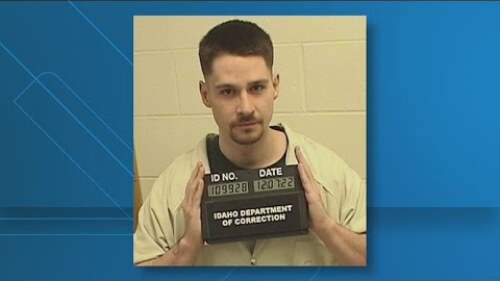By Jason Meisner
Chicago Tribune
CHICAGO — President Donald Trump has commuted the federal life sentence for infamous Gangster Disciples founder Larry Hoover, abruptly ending Hoover’s yearslong quest to win early release under the First Step Act law passed during Trump’s first term.
The one page order said Hoover’s sentence was considered served “with no further fines, restitution, probation or other conditions,” and directed the U.S. Bureau of Prisons to release him “immediately,” according to a copy of the document provided by Hoover’s legal team.
The controversial move — part of a slew of commutations and pardons announced by the White House this week — means Hoover will likely be transferred out of the supermax prison compound in Florence, Colorado, that he’s called home for the past two decades.
Related | 5 things to know about ADX Florence
But Hoover isn’t going free — he’s still serving a 200-year sentence for his state court convictions for murder.
Federal prosecutors have vehemently opposed any breaks for Hoover, now 73, arguing he did untold damage to communities across Chicago during his reign on the streets. They argued he has continued to hold sway over the gang’s hierarchy while imprisoned, even promoting an underling he’d secretly communicated with through coded messages hidden in a dictionary.
Hoover’s attorneys, meanwhile, have claimed that decades behind bars have left him a changed man and that prosecutors have unfairly painted him as a puppet master to try to keep him locked up.
At a hearing last year, U.S. District Judge John Robert Blakey asked Hoover’s defense attorney point-blank: “How many other murders is he responsible for?”
“I don’t know what the methodology is for determining that,” attorney Jennifer Bonjean replied, somewhat taken aback by the unusually blunt query.
“So many we can’t count?” Blakey shot back.
After Bonjean said she couldn’t “put a number on it,” Blakey went a step further and asked if Hoover himself would like to weigh in.
“He probably has the most knowledge of all,” the judge said.
At that hearing, which Hoover attended via a live link from prison, he told the judge he’s “had a chance to reflect on my life and the trouble that my existence has caused in the community.”
“Here in (the supermax) you’re locked up at least 21 hours a day. You go away in your cell and reflect on every aspect of your life, and you see things differently,” Hoover said. “You see things you’re proud of and you see things that maybe you’re not so proud of, and you realize that life is too short.”
If he were released, Hoover said, he would counsel others how to avoid gangs, not join them.
“I just want to say that I would be a credible risk if you were to allow me to go back to the world,” Hoover said.
Blakey had not yet ruled on Hoover’s motion.
Hoover was already serving a 200-year state sentence for the murder of a rival when he was indicted in federal court in 1995 on charges he continued to oversee the murderous drug gang’s reign of terror from prison.
He was convicted on 40 criminal counts in 1997, and Leinenweber sentenced him to the mandatory term of life.
“I don’t always agree with the guidelines,” Leinenweber told Hoover during that hearing. “Sometimes I think they are too draconian. But in this case, I agree with them 100%.”
—
©2025 Chicago Tribune. Visit chicagotribune.com. Distributed by Tribune Content Agency, LLC.





